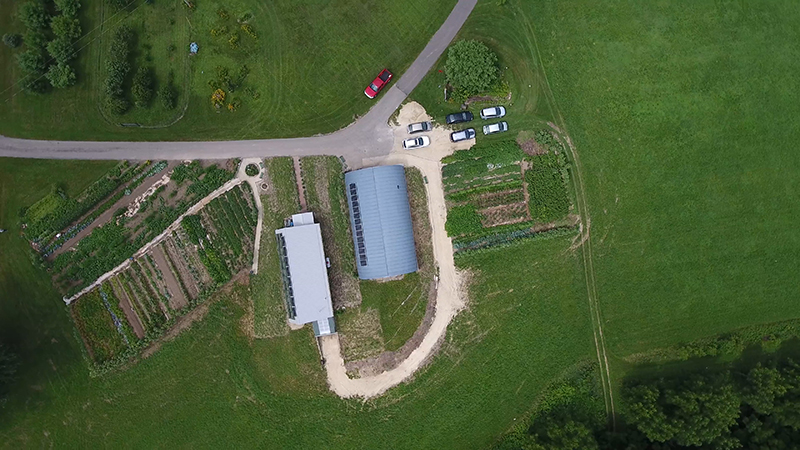From classroom to garden …
to tables of abundance and sustainability in the future
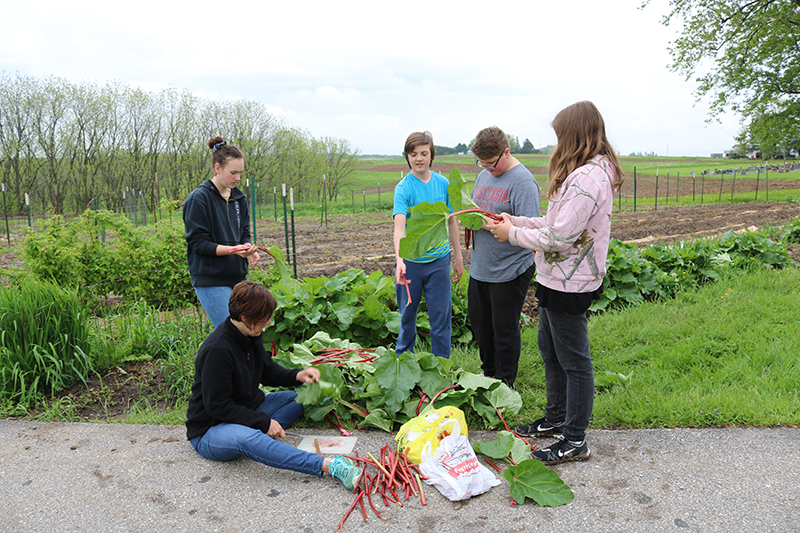
Every spring and fall in La Crosse, Wisconsin, with their hands in the rich soil, their bodies and brains soaking up its powerful nutrients, seventh-grade students from Longfellow Middle School live the lesson of environmental responsibility at FSPA land on St. Joseph Ridge. At the root of this deep-seeded relationship is FSPA’s commitment to using our land resources to model sustainability practices and spirituality for others while upholding our long-standing mission of education. Two women who are nurturing such care of all creation are sharing the experiences that they had in the garden with the students — a lifegiving story of stewardship, sustainability and healthy lifestyles that will feed us for generations to come.
Karen Stoltz, FSPA ecospirituality project outreach coordinator
The seventh-grade students from Longfellow visit the FSPA organic garden during spring planting and fall harvest each year. Typically, around 50 students and three teachers participate. FSPA Integral Ecology Director Beth Piggush and Land Sustainability Coordinator Steve Dewald also assist as supervisors. In the spring, students plant butternut squash, zinnia, and marigold seeds in their classroom and transplant the seedlings in the garden. We give the group a tour and set them off to work in groups. In the fall, they get to harvest the bounty that grew from their work.
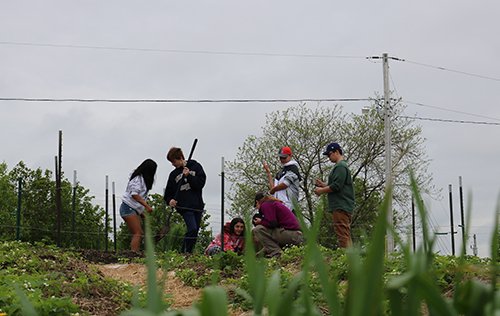
I love watching their camaraderie and excitement as they pitch in to a project that they know will have a positive impact. It's especially rewarding when a student observes a plant or an animal that's unique and wants to learn more. The teachers are wonderful at keeping the students focused and modeling the work to be done. These days are fun, energy-packed, educational and very fulfilling for all of us.
Ultimately, we want the kids to learn about the value and life cycle of the plants as well as to experience the joy of working directly with the earth and caring for creation. We also reinforce the value of organic gardening and sustainability, part of the curriculum at Longfellow. We hope to inspire wonder and awe as they experience the beauty of nature all around them.
Elizabeth Ramsey, seventh-grade teacher Longfellow Middle School
I’m so fortunate that my students have had a relationship with FSPA by volunteering twice a year at the garden. It began when my teaching partner and I invited La Crosse women who are role models and influential leaders in their area of expertise to be interviewed by our students. One of them, Sister Lucy Slinger graciously accepted the invitation. Standing in the hallway at Longfellow with Sister Lucy, having a brief conversation about plants, was all it took to create a very special partnership. She insisted that we bring the students to the garden. We visited that spring and went back in the fall. That was eight years ago. It’s wonderful!
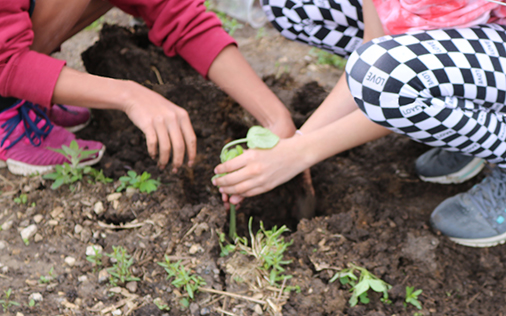
Watching these 13-year-olds willingly work in a garden for a good three hours — each of them eagerly pitching in, helpful and kind, doing whatever chores are needed — is very special and unique. Many of them have never had this experience. They learn how much time and energy is involved in food production. They are often surprised after harvesting and weighing the food. All that work for 100 pounds of produce! They realize with delight that this food will help to feed the sisters at the Villa and St. Rose with the surplus going to La Crosse-area food banks. I can see their pride shine as they realize that they are part of a community and that their actions can make a difference!
Do I think that an early-learning focus on ecological sustainability can change the world? Absolutely. Students learn by seeing others model sustainability practices and good behavior; by getting outdoors and caring for our environment themselves. They have the opportunity to become effective decision-makers and problem-solvers whose values for the environment and volunteerism impact the present and the future.
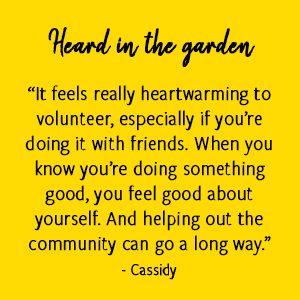
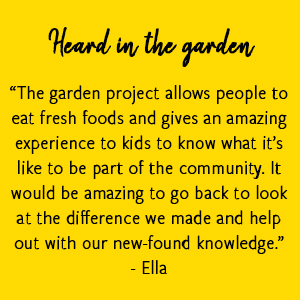
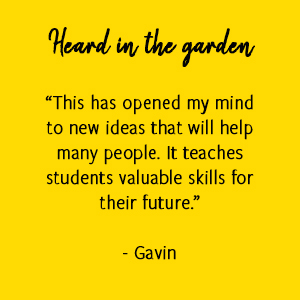
Send an email to communications@fspa.org for information to tour and or volunteer!

